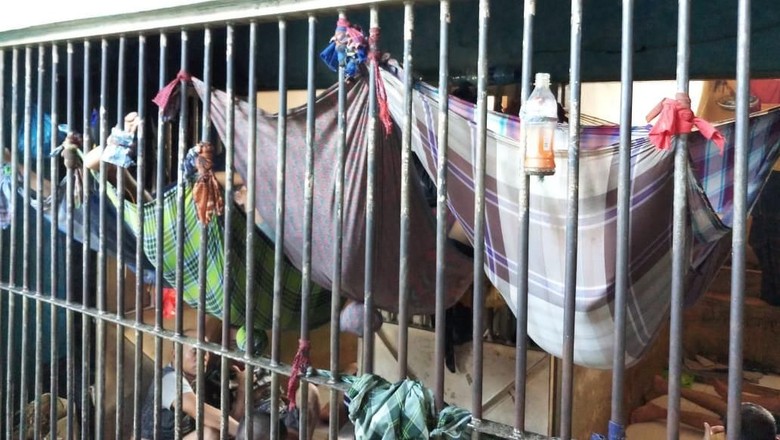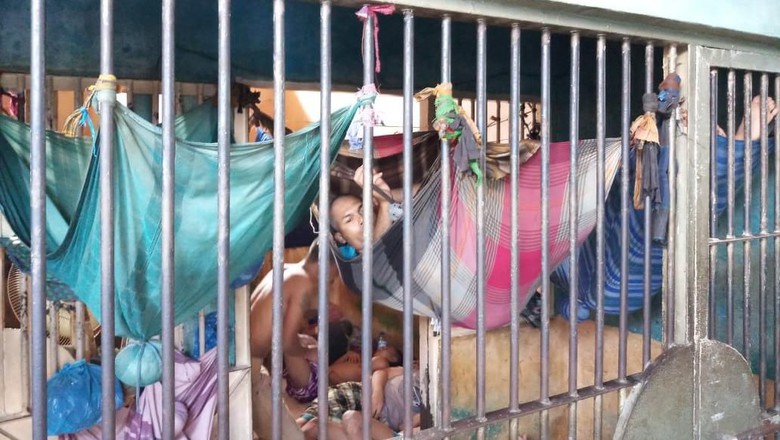The idea of sleeping in a hammock might sound nice and relaxing to you, but probably not so much if you were forced to do so because you were locked in a prison cell that was so far overcapacity that, not only were there no free beds to sleep in, there wasn’t even any space on the ground to lie down.
Photos of inmates sleeping suspended off the ground at the Bagansiapiapi Detention Center in Riau, first obtained by Detik, offer a grim glimpse into just how severe the overcrowding issue is in many Indonesian prisons.

According to officials, Bagansiapiapi was built to accommodate 98 inmates but is currently holding over 800. And while it might be one of the worst offenders, the problem of overcrowding is dire throughout Indonesia’s correctional system.
Minister of Law and Human Rights (Menkum HAM) Yasonna Laoly said that while the official total holding capacity of all Indonesian prisons is 123,025, there are nearly double that number of inmates, 246,389, currently in holding throughout the country. And that number is growing quickly.
“In the correctional system’s database, it shows the number of prisoners and detainees who are in holding is as high as 246,389. That figure continues to grow second by second and is far less than the number leaving the system, meaning it keeps going up and up,” Laoly said as quoted by Detik.
Taufiqulhadi, a member of Parliament’s Commission III, which handles legal matters including the prison system, said that the government had increased the budget for prisons to try and solve the problem but said far more would be required to increase the system’s capacity to a sufficient level. He said that one of the things that could be the solution to this problem was to reduce the number of people going to prison.
Laoly, Taufiqulhadi and other Indonesian officials have noted that a huge percentage of prisoners are incarcerated due to narcotics violations, which is unsurprising given the country’s harsh drug laws.
Taufiqulhadi said that a new revision of the country’s criminal code was needed to provide more alternatives to incarceration for criminals, such as rehabilitation for drug offenders.
It should also be noted that while many Indonesian prisons are far overcapacity, the penal system’s pervasive corruption has also created a problem at the other end of the scale in which wealthy corruption convicts have been found to be incarcerated in “cells” more akin to luxury hotel rooms, complete with amenities such as refrigerators, aquariums and private keys.




